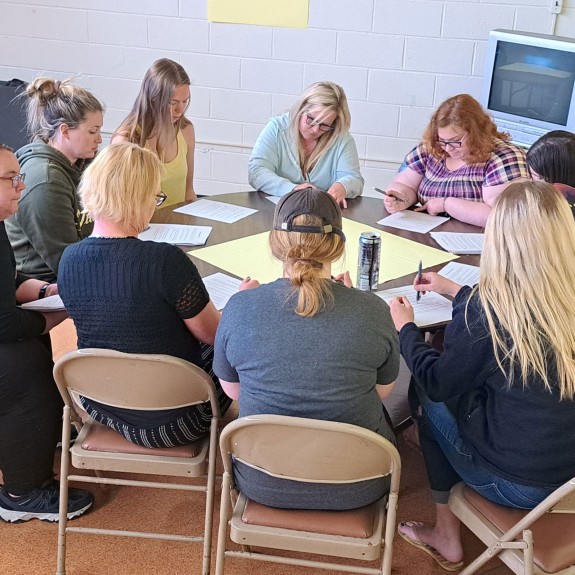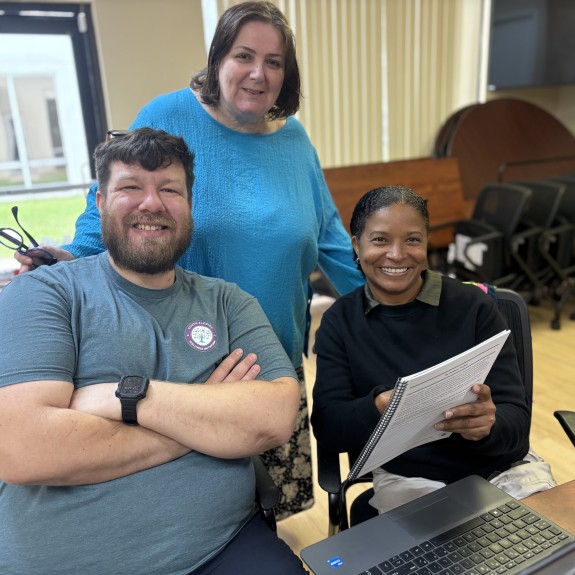VT Peer Credentialing Center
Building a Certified Peer Workforce Rooted in Lived Experience
The Vermont Peer Credentialing Center is the official hub for credentialing peer support providers — individuals who use their own lived experience of mental health, substance use, and trauma recovery to support others on their journeys.
Through a partnership with the Vermont Department of Mental Health and the Office of Professional Regulation, the Center upholds the values of mutuality, respect, and self-determination that define peer support. Certification through this program recognizes a provider’s experience, training, and commitment to ethical, trauma-informed, and recovery-oriented practice.
Through clear paths — including standard certification, reciprocity, and alternate routes for experienced providers — Vermont’s credentialing process ensures that peer supporters are recognized as essential professionals in the behavioral health system.
The Vermont Peer Credentialing Center is more than a gatekeeper of certification; it is a resource for ongoing growth, integrity, and connection within the peer community. Together, we are strengthening the peer workforce and advancing a vision of wellness grounded in hope, human rights, and shared experience.
VT Peer Credentialing Advisory Committee
Dear Community Partners,
Vermont is building something historic — its first statewide Peer Credentialing Center — and we need your voice to guide the process.
The Vermont Peer Credentialing Advisory Committee will play a key role in developing the policies, structure, and values that define how peer support specialists are recognized and supported across the state. This is an opportunity to ensure that peer support in Vermont remains grounded in lived experience, mutuality, and self-determination.
Why this matters:
Vermont’s peer workforce continues to grow and take on new roles in mental health, substance use, and community recovery settings. The new credentialing process will help strengthen professional recognition, open doors for employment and advancement, and ensure that training and supervision standards reflect the true spirit of peer support.
Committee members will:
- Advise on policies, application and renewal processes, and accessibility standards
- Ensure that credentialing reflects diverse voices, regions, and experiences
- Review materials and provide recommendations to the Department of Mental Health and Office of Professional Regulation
- Support equity, transparency, and quality in peer services statewide
Who should consider joining:
- Peer support specialists (credentialed, provisional, or in training)
- Supervisors, employers, and program directors who support peer staff
- Representatives from advocacy, recovery, and training organizations
- State and community partners (DMH, OPR, local networks)
- Anyone with lived experience passionate about advancing the peer workforce
Commitment:
Meets virtually quarterly, with opportunities to join committees of your interest.
By participating, you’ll help shape a credentialing system that supports both peer integrity and workforce sustainability — and that keeps Vermont at the forefront of peer-led innovation.
Please consider joining, or share this widely with others in your networks who care about strengthening the peer workforce in Vermont.
For more information or to express interest, scan the QR code on the attached flyer, follow this link or contact [email protected].

Alternative Path Credentialing
Do you currently work in Peer Support and have knowledge of peer support practices? You may want to consider taking the abbreviated path toward certification.

Reciprocity Credentialing
Do you currently hold a peer support certification in another state? Reciprocity Credentialing is for peers who are already certified in a state other than Vermont.
Standard Path Credentialing
The standard path has you take peer support training through Pathways VT. After completion, you will take an exam through the VT Peer Credentialing Center. Successful candidates will then gain the credential they need to reach certification through Office of Professional Regulation (OPR). There will be more information on this path as it is established and training is rolled out.
Stay Updated
You are invited to stay connected and learn more about trainings, wellbeing programs, continuing education opportunities, and more!
